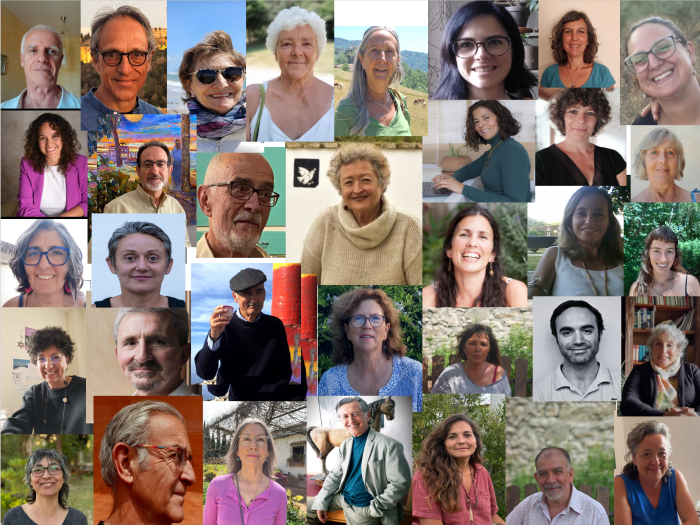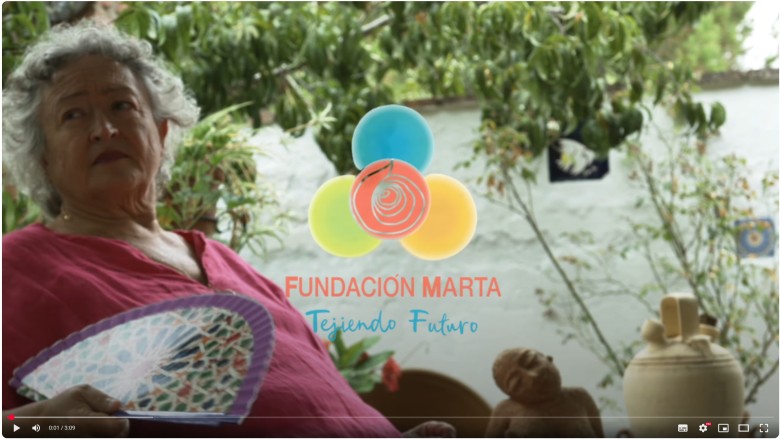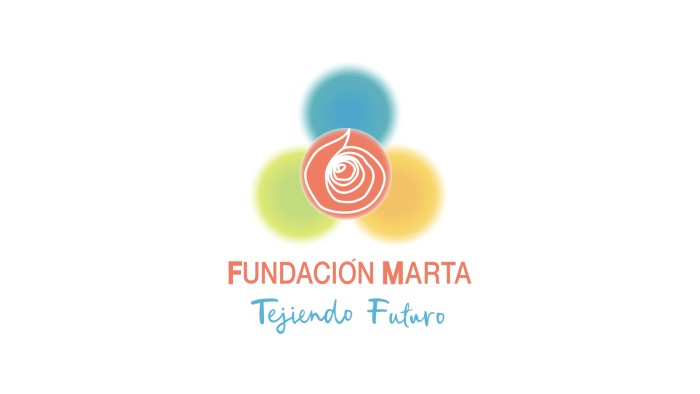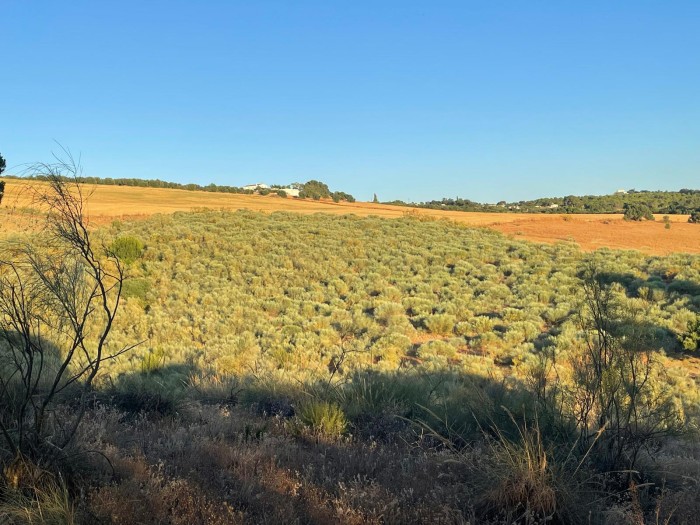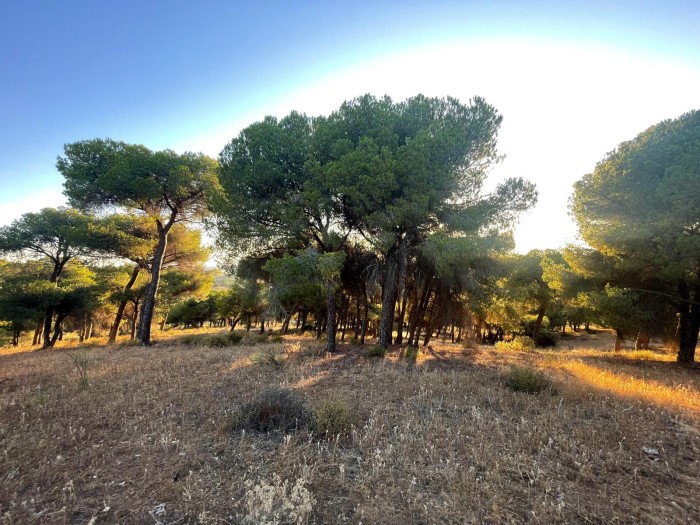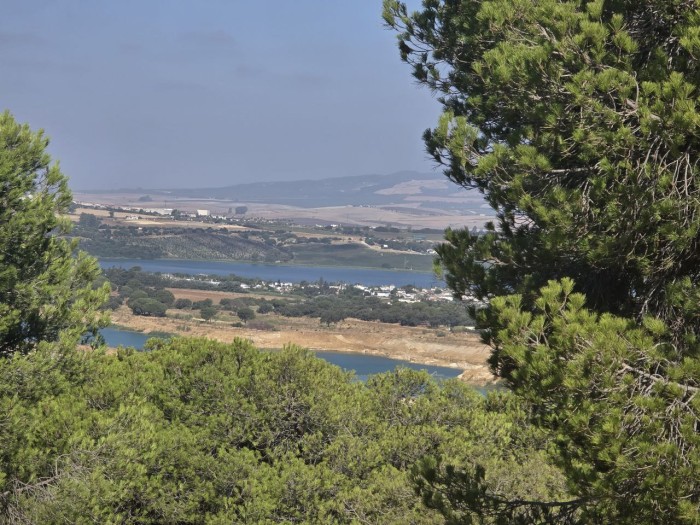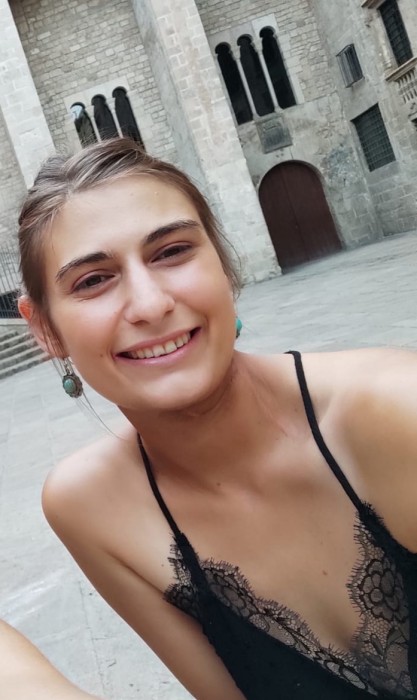The project proposed by the Marta T.F. Foundation is born out of the intention to create and build, on an estate located in Arcos de la Frontera (Cádiz), various spaces designed to meet the fundamental needs that facilitate life.
Life itself.
It emerges as a dynamic design, open to people, ideas, and contributions that support the lives of, in its initial phase, vulnerable groups such as women experiencing recent or imminent motherhood (including single-parent families) and elderly people.
The project clearly aims to collectively create and generate social, economic, labor, therapeutic, environmental, educational, and holistic human development alternatives. It intends to serve as a pilot project in significant areas such as intergenerational coexistence, social integration and education, labor integration and regional development, sustainable food production methods (agroecology and permaculture), and energy sustainability.
What makes this project unique is the idea of community as an essential aspect of a dignified human life. To this end, the Marta T.F. Foundation will create intergenerational cohabitation spaces where each individual will have the opportunity to actively participate in community life to the extent their circumstances allow — whether through active work or by sharing experiences and knowledge that contribute to and support the common project.
In this first phase of the project, constructing a well, establishing a digital presence and building the basic infrastructure to begin operations are essential. For this initial phase of development and construction, the Marta T.F. Foundation is seeking financial support.
Main features and goals of the crowdfunding campaign
The overall objective of the Marta T.F. Foundation is to promote the development of the local area towards a greater general well-being, enabling progress on social, personal, economic, and cultural levels.
Among the goals for this first phase — the development and construction phase — are the creation of the foundation’s and project’s digital presence, land preparation, spatial design and architectural planning, and, if the crowdfunding raises more funds than expected, the construction of the necessary infrastructure for the Foundation’s initial projects, which include:
Almazuela (the central space where all the common services for the independent units or subprojects will be located),
Júbilo (a community space that will host people over 65 years who, either out of the desire to share daily life or out of need, seek a comfortable and safe place to feel useful and facilitate exchange with the rest of the community — 25% of the spots will be reserved for people without financial resources),
Madriguera (a safe, collective, and healthy space for women who lack a family or social support network and who are experiencing recent or imminent motherhood, as well as for their children up to 3 years old), and
Eus-Cádiz (a school-restaurant aimed at promoting territorial development by training groups at risk of social exclusion, creating a dignified work environment with a special focus on healthy nutrition and zero-kilometer food).
Specifically, the activities intended to be funded (either partially or up to the total amount raised by this crowdfunding) include:
-
Water well and land preparation: In the first place this means the construction of a well to be able to provide water to animals like sheeps, that will help to clean the property and also to be able to irrigate the first plants. In a secod step it involves not only fencing the estate and improving access paths but also beginning the reforestation of the land with fruit trees and preparing agricultural spaces based on agroecology and permaculture principles. The goal is to restore soil fertility and start producing as soon as possible to achieve agro-food self-sufficiency and supply the project with zero-kilometer products.
-
Digital presence of the foundation and the project: This includes activities such as programming the website, which will serve as the launch platform to reach the general public and interested individuals (including local and regional entities needing community development support, as well as individuals seeking accommodation in Júbilo, Madriguera, or wishing to participate in Eus-Cádiz).
-
Spatial design and architectural planning: For this, the Marta T.F. Foundation mainly needs to hire an architect knowledgeable in sustainable and bioclimatic construction to ensure the project achieves maximum self-sufficiency and energy efficiency. It is also essential to design a space where all areas are linked and connected, implementing the concept of community — the essence of the project.
-
Construction of the basic infrastructure: The Foundation needs to carry out the physical construction of the space where activities will take place. This includes preparing a preliminary project and a detailed project, as well as obtaining and paying for the necessary permits from the City Council and the Junta de Andalucía. Construction costs (materials and labor) are also significant.
The activities of the construction of the well, creating the digital presence, land preparation, and spatial design and architectural planning will be carried out concurrently during the Foundation’s first year of operation. Should the crowdfunding exceed the planned amount significantly, the extra funds will be allocated to completing the administrative procedures for obtaining construction permits and to the effective construction of the basic infrastructure for the subprojects described above.
What makes this project unique is the idea of community as an essential aspect of a dignified human life. To this end, the Marta T.F. Foundation will create intergenerational cohabitation spaces where each individual will have the opportunity to actively participate in communal life to the extent their circumstances allow — whether through active work or by sharing experiences and knowledge that contribute to and support the common project.
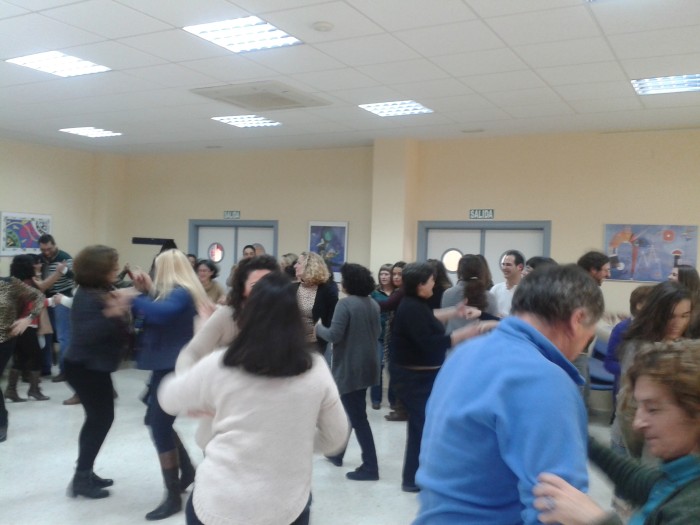
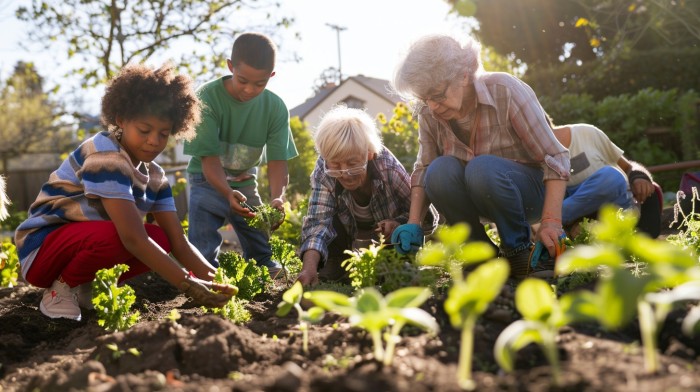
Why this is important
This project is for everyone who believes in the value of humanity—those who recognize that today’s individualistic and fragmented lifestyle doesn’t lead to true fulfillment. It’s for those who believe that the later stages of life, whether long or brief, can be lived fully when the environment supports it. It’s for those who understand that motherhood is both an overwhelming and beautiful transition, and that family structures come in many forms, all deserving of respect and support. Ultimately, this project is for anyone willing to contribute their bit toward building a kinder, more compassionate society.
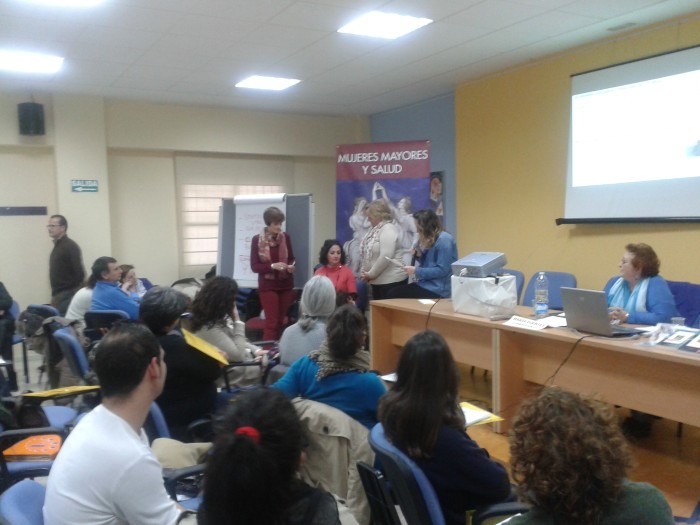
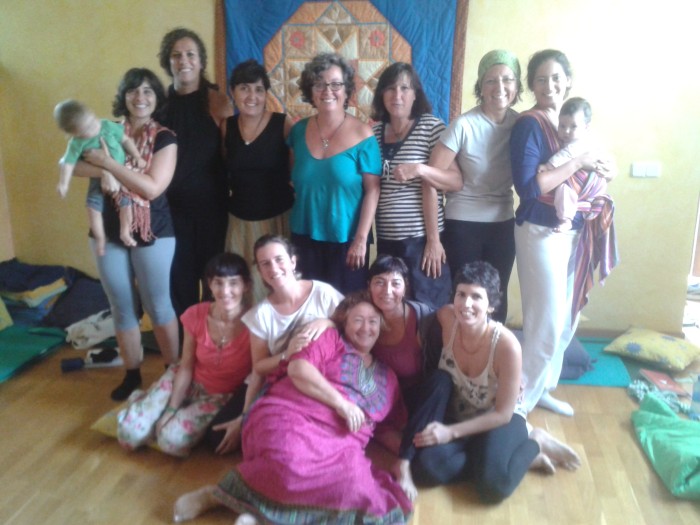
Team and experience
The Marta T.F. Foundation will draw upon the experiences accumulated by Dr. María Fuentes Caballero throughout her 40-year professional career. She specializes in health and gender, as well as maternal and child health. She is also the author of several published works on the subject (in Spanish and Portuguese). Among the projects she has led are, for example, the founding and management of the Centro de Salud Artemisa (Artemisa Health Center) (2002–present), the foundation and design of the Escuela libre de salud holística y materno-infantil Consuelo Ruiz (Consuelo Ruiz Free School of Holistic and Maternal-Child Health) (2006–2010), the creation of the Programa de Prevención y Promoción de Salud Mujer y Salud (Women’s Health Prevention and Promotion Program) with a gender perspective for the Delegación de Salud y Género del Ayuntamiento de Jerez de la Frontera, Cádiz (Health and Gender Delegation of the City Council of Jerez de la Frontera, Cádiz) (1994–2002), and the founding of the Asociación profesional española NACER EN CASA (Spanish Professional Association BORN AT HOME) (1988–present). She has also collaborated with various professional and user groups in the fields of health and family. It is estimated that several thousands of persons have benefited from this work, first in Catalonia and later in Andalusia and the rest of Spain. For more information, visit: https://artemisalud.blogspot.com/p/blog-page_13.html
The project also benefits from the experience of Sembradoras de Salud (Health Sowers), a collective promoted by Dr. María Fuentes Caballero within the framework of the Agentas de Salud Comunitario program (Community Health Agents). Sembradoras de Salud has been working within the social fabric of the Province of Cádiz and the autonomous community of Andalusia for over 11 years. The work of this association focuses on health prevention and promotion from a comprehensive and gender-based perspective. By providing simple, economical, and effective tools, it promotes body awareness, self-knowledge, the creation of support networks, and involvement in the community and environment, thereby fostering self-management of health and life. Over the 11 years of work with the population, Sembradoras de Salud has carried out projects funded by European funds as well as regional, provincial, and local administrations, both public and private initiatives, directly reaching more than 10,000 people. A remarkable aspect of this work is its multiplier effect, as seen among the members of Sembradoras themselves, where the training has inspired a desire to replicate what was learned for others in the community. One of the most recent examples is the Formación de Agentas de Salud (Training of Health Agents) carried out at the Ayuntamiento de Jerez de la Frontera (City Council of Jerez de la Frontera) during 2022, through which 15 women were trained. Several of these women continue, three years later, to transmit what they learned through parenting groups, self-massage groups (Do-in), and more. Another example of this work is the Grupos de Mujeres y Salud (Women and Health Groups) that Sembradoras has been developing since 2013 in various localities. For more information about Sembradoras de Salud’s work, visit: https://sembradorasdesalud.es/
In addition, María has been deeply involved in social projects throughout the country from a young age, which has given her extensive experience and close contact with initiatives such as Fundación La Plana (https://www.fundaciolaplana.org/es/), Titania-Tascó (a Holistic Health Center in Barcelona that operated for 38 years), the Asociación de Sembradoras de Salud (https://sembradorasdesalud.es/), and the Lakabe project (https://www.lakabe.org). She has also been connected with projects such as the Fundación Girasol addiction treatment center (https://fundaciongirasol.es/), Almenara Equipamientos (https://almenara-equipamientos.com/), and Escuela Amable (https://escuelaamable.es/), all located in Arcos de la Frontera.
The current team working on the realization of the Marta T.F. Foundation project is made up of 35 people of diverse ages and profiles (ranging from their 30s to over 82 years old, including lawyers, economists, doctors, educators, and storytellers). A large portion of these individuals are long term professionals — many retired — with extensive and proven experience in high-responsibility and recognized positions. They all share personal histories of long-term involvement and work in private, public, and social initiatives with wide-ranging impact at the local, regional, national, and international levels.
Since the project was publicly announced within a small circle about a year ago, approximately 120 people have expressed interest, most from Arcos de la Frontera and the Province of Cádiz. Additionally, many others from the rest of Spain and abroad have also shown interest in the project.
